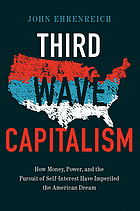Distribution (Economic theory)
How? Click on the library databases below and type Broad Search Words relating to your topic, such as: mass incarceration
Click on the next tab above ("Then find books, videos, articles") to dig deeper and focus your search.
You can also use Google Scholar or Google Books to find sources:
If you can't find the full text of an article or book (through library databases or through Google Scholar or on the web), you can request it through Interlibrary Loan. Through this service, you can usually get copies of articles in 3-4 business days and books in 8-10 days.
CLICK:
(Click below to enlarge image)
Examples
Use the Evaluation Criteria Below to Evaluate the Quality of Your Source.
Log in or create your free student account with NoodleTools using the link below and easily create and store citations.
Vide the video and information below to learn more about why citing is so important!
To find video segments in the "Contents" area: Click the carrot or the arrow at the bottom of the video player
Example:
(click to enlarge image)
View the video below to learn more about how the librarians can help you
Contact us:
![]() In Person
In Person
Find a librarian on staff at the information desk during the library's open hours. This is the best way to contact us if you are on campus, need immediate assistance or have a lengthy or complicated question.
![]() By Chat / Instant Message
By Chat / Instant Message
Chat with a librarian through the library's chat /instant messaging service. We participate in a program where librarians from all over the country can answer questions, 24 hours a day, 7 days a week!
![]() By Email
By Email
Email a reference librarian with a reference question at librarian@greenriver.edu. This is an alternative to chat IM if you want help from a Green River Community College librarian. Emails will be answered Monday through Friday during normal business hours.
 The Crisis of the Middle-Class Constitution: Why Economic Inequality Threatens Our Republic
by
The Crisis of the Middle-Class Constitution: Why Economic Inequality Threatens Our Republic
by
 Third Wave Capitalism: how money, power, and the pursuit of self-interest have imperiled the American dream
by
Third Wave Capitalism: how money, power, and the pursuit of self-interest have imperiled the American dream
by
 Driving after Class: Anxious Times in an American Suburb
by
Driving after Class: Anxious Times in an American Suburb
by
 Social Class on Campus : Theories and Manifestations
by
Social Class on Campus : Theories and Manifestations
by
 Facing Social Class
by
Facing Social Class
by
 Social Class and Changing Families in an Unequal America
by
Social Class and Changing Families in an Unequal America
by
 Inequality in America : Facts, Trends, and International Perspectives
by
Inequality in America : Facts, Trends, and International Perspectives
by
 The Economic Civil Rights Movement: African Americans and the struggle for economic power
by
The Economic Civil Rights Movement: African Americans and the struggle for economic power
by
 The Making of a Teenage Service Class: Poverty and mobility in an American city
by
The Making of a Teenage Service Class: Poverty and mobility in an American city
by
 Dividing Classes: How the Middle Class Negotiates and Rationalizes School Advantage
by
Dividing Classes: How the Middle Class Negotiates and Rationalizes School Advantage
by